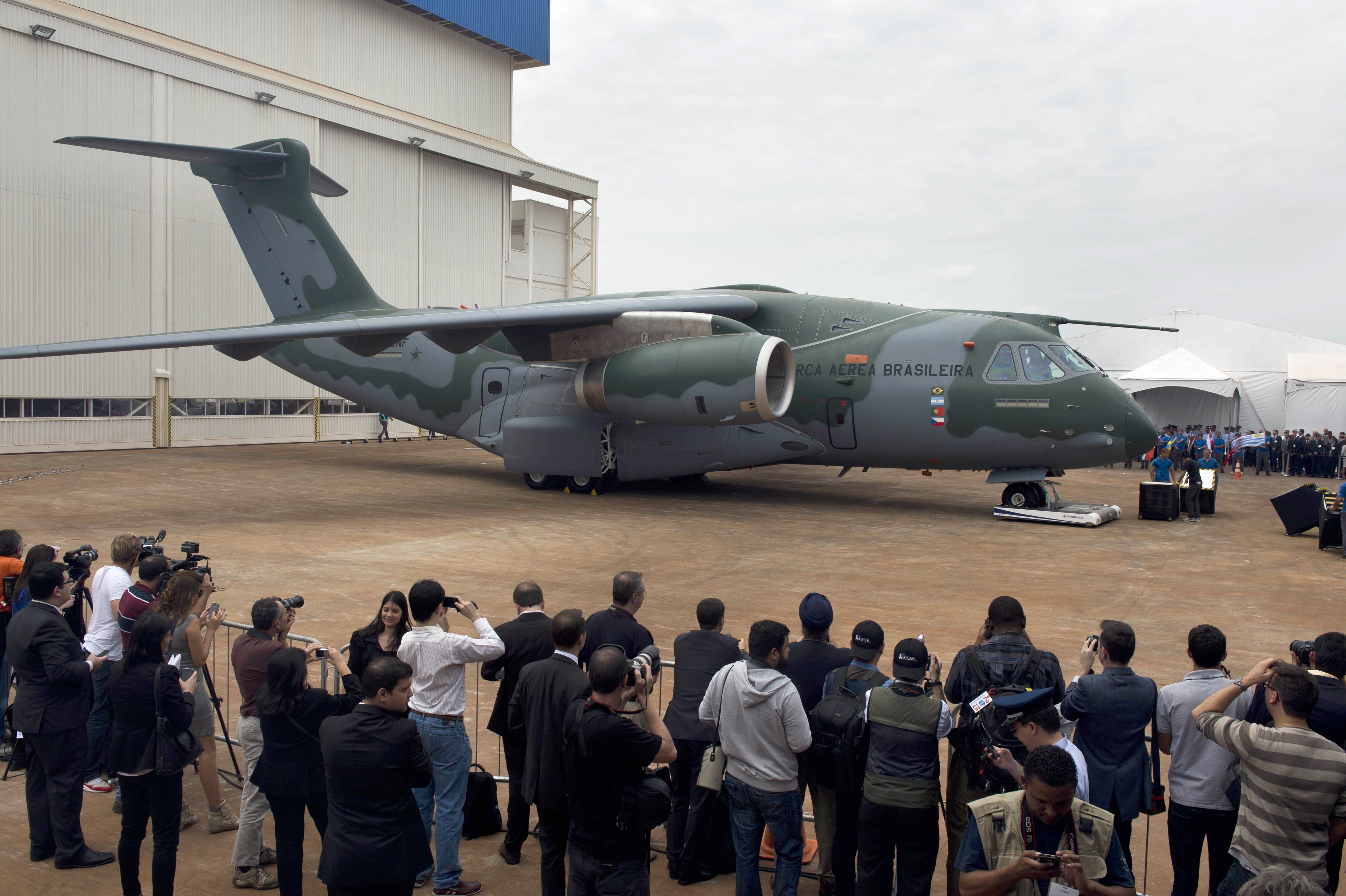WASHINGTON — Boeing is still in talks with Brazilian aerospace firm Embraer about a possible acquisition, but the Boeing’s chief executive said Wednesday that the company’s success won’t be be dependent on the tie up.
Boeing and Embraer’s discussions, which were first disclosed in late December, have gone on for a “relatively long period,” but more work will be needed to negotiate terms that satisfy the Brazilian government, which holds a controlling share in the company, said Boeing CEO Dennis Muilenburg.
“The opportunity with Embraer, we do think is an important one,” he said during a Jan. 31 earnings call. “It’s a great strategic fit. We continue to have productive discussions on that topic, and we know that the government of Brazil has raised some concerns or issues that we fully respect, and we’re working through the details of potential options going forward and doing that in a very diligent way. I’m hopeful that we can bring that deal to conclusion, but more work to go on that front.”
RELATED

At the core of Brazil’s concerns seem to be its ability to retain veto power over Embraer’s business deals, specifically its defense programs.
Brazil had balked at the idea of Boeing taking over the company rather than offering a partnership or joint venture, a Brazilian government source told Reuters earlier this month. Boeing is open to the idea of preserving the country’s “golden share,” another source said in the same report.
A tie up could expand Boeing’s defense product line with aircraft like the Super Tucano turboprop and KC-390 transport aircraft manufactured by Embraer, and the two companies have even partnered up on KC-390, with Boeing helping to market the plane worldwide. But analysts say the real benefit for Boeing would be seen in the commercial sector, as Embraer’s aircraft are better positioned to compete in the narrowbody market with the C Series planes sold jointly by Bombardier and Airbus.
Muilenburg pushed back on that characterization, saying that “the work that we’re doing on middle of the market [commercial aircraft] and the Embraer action are two separate activities. They’re not dependent on each other or influencing each other, and I would expect that to continue to be the case.”
Embraer and Boeing have “complimentary” product lines, services capabilities and investments in growing talent and innovation, but Boeing’s future is not dependent on reaching a deal with Embraer, he said.
“Even if that [tie-up] doesn’t happen, we have a very strong plan for the future. We have a solid strategy, we know exactly how we’re going to grow for the future, we’ve got the right investments identified. We’re ready to compete and win in the future regardless of the outcomes of these trade matters or the potential deal with Embraer and we’re going to stay very focused on executing that strategy.”
Valerie Insinna is Defense News' air warfare reporter. She previously worked the Navy/congressional beats for Defense Daily, which followed almost three years as a staff writer for National Defense Magazine. Prior to that, she worked as an editorial assistant for the Tokyo Shimbun’s Washington bureau.







